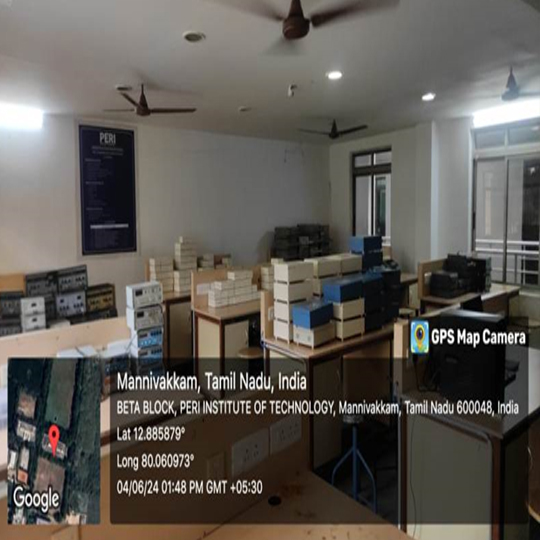Laboratory
Networks Security & Embedded Lab
Networks Security & Embedded Lab
About
The Networks Security & Embedded Laboratory in the Electronics and Communication Engineering (ECE) department is established to provide students with in-depth knowledge and practical skills in two highly relevant and evolving domains: network security and embedded system design. The core objective of this laboratory is to equip students with the ability to design, simulate, implement, and evaluate secure communication systems and real-time embedded applications, both of which are integral to modern-day electronics, automation, and communication technologies.
In the network security module, students are introduced to fundamental and advanced concepts of data security, including cryptography, data integrity, authentication, firewall configuration, intrusion detection systems, and secure communication protocols. They gain hands-on experience in implementing encryption algorithms such as AES (Advanced Encryption Standard), DES (Data Encryption Standard), RSA (Rivest–Shamir–Adleman), and SHA (Secure Hash Algorithms). Using simulation and analysis tools like Wireshark, NS2/NS3, Cisco Packet Tracer, and Kali Linux, students learn how to monitor traffic, detect vulnerabilities, and secure a network against various types of cyber threats, including man-in-the-middle attacks, DoS/DDoS attacks, and malware-based intrusions. The lab fosters an understanding of secure communication architectures and the importance of cybersecurity in interconnected systems and the Internet of Things (IoT).
On the embedded systems front, the laboratory provides students with the skills to develop and debug firmware for microcontrollers and embedded platforms. Students work with hardware like 8051, AVR, ARM Cortex, Arduino, Raspberry Pi, and interface components such as sensors, motors, displays, and communication modules (UART, SPI, I2C, ZigBee, Bluetooth, Wi-Fi). Programming environments like Keil µVision, Arduino IDE, and Python on Raspberry Pi are used to design projects that demonstrate real-time data acquisition, control systems, embedded IoT applications, and automation. Students learn to develop energy-efficient, reliable, and scalable embedded applications for use in consumer electronics, industrial automation, healthcare devices, and smart environments.
By combining the principles of secure communication with real-time embedded development, the lab provides a holistic, interdisciplinary training environment that reflects current industry practices. It prepares students to tackle real-world engineering problems where embedded systems are connected to networks that must be both intelligent and secure. The laboratory thus aims to cultivate the next generation of embedded systems engineers, IoT developers, and cyber security professionals, ready to contribute effectively to both product development and system security in a wide range of technological sectors.









